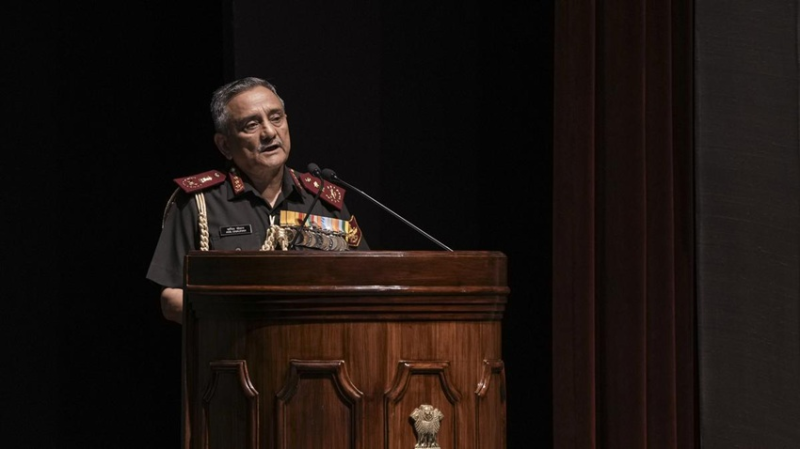- India Sees 9% Drop in Foreign Tourists as Bangladesh Visits Plunge |
- Dhaka Urges Restraint in Pakistan-Afghan War |
- Guterres Urges Action on Safe Migration Pact |
- OpenAI Raises $110B in Amazon-Led Funding |
- Puppet show enchants Children as Boi Mela comes alive on day 2 |
Indian CDS Warns of China-Pakistan-Bangladesh Axis

Indian Chief of Defence Staff General Anil Chauhan said. Photo: File
India’s Chief of Defence Staff (CDS) General Anil Chauhan has flagged a potential convergence of strategic interests among China, Pakistan, and Bangladesh, warning that it could pose a serious challenge to regional stability and India’s national security.
Speaking at the launch of the Foreign Policy Survey 2024 by the Observer Research Foundation (ORF), Gen. Chauhan said shifting geopolitical dynamics in South Asia, frequent changes in government, and emerging ideological alignments have created new vulnerabilities for India.
“There appears to be a growing convergence of interest between China, Pakistan and Bangladesh, which may have serious implications for regional security,” he said.
Highlighting concerns in neighbouring Myanmar, Gen. Chauhan noted that instability there has led to a refugee crisis affecting India’s northeast. While ruling out any form of intervention, he warned that prolonged unrest could evolve into a long-term security concern for India.
He also pointed to increasing influence of external powers in the Indian Ocean Region (IOR) through tactics like debt diplomacy, which he said was contributing to India's strategic vulnerabilities.
“The global security situation is in flux. The world is transitioning between two orders, and the U.S. position adds further complexity,” Gen. Chauhan noted.
Addressing non-traditional threats, he stressed that the weaponisation of digital platforms, the spread of misinformation, and cyber warfare are creating new domains of conflict that undermine trust and public perception.
Emphasising the need for strategic preparedness, he advocated for intelligent stockpiling, robust domestic surge capacity, and collaboration with trusted international partners to secure resilient defence supply chains.
Gen. Chauhan also underscored the importance of innovation in defence research and development, urging integration of advanced technologies to build a self-reliant defence ecosystem capable of addressing future security challenges.

